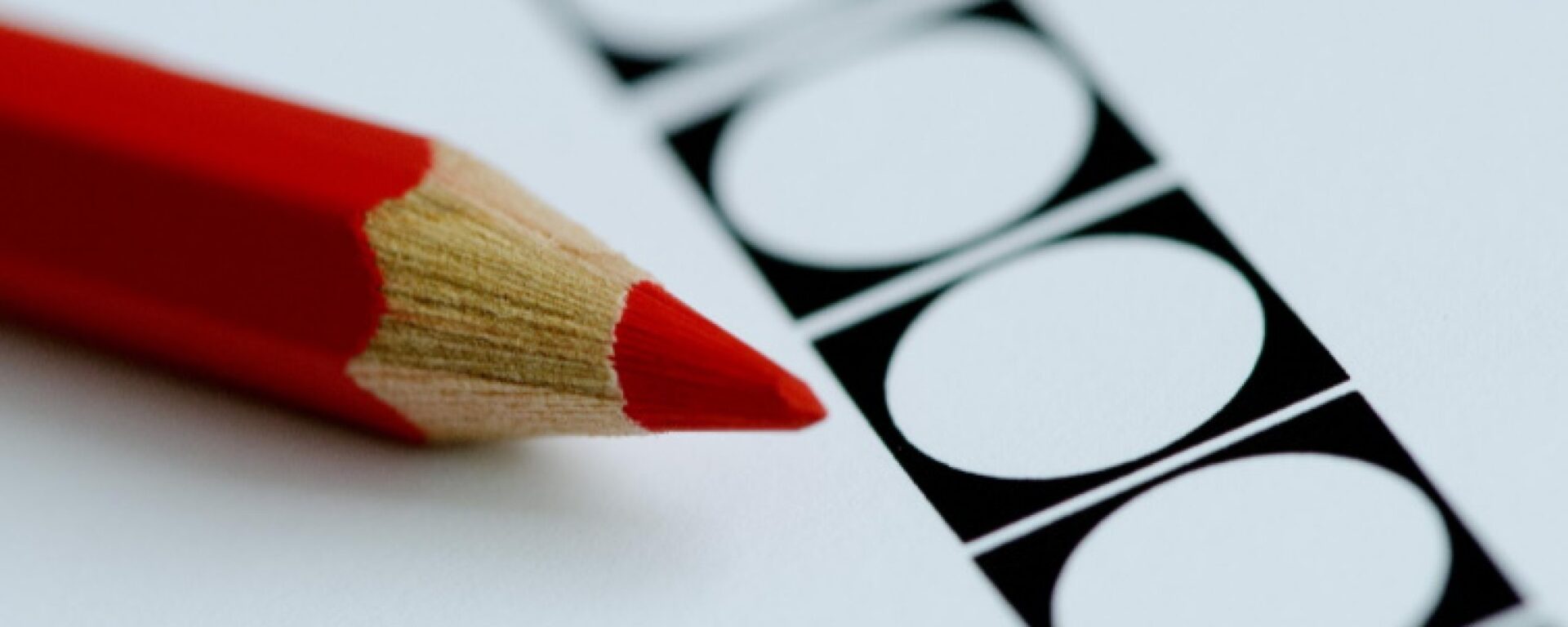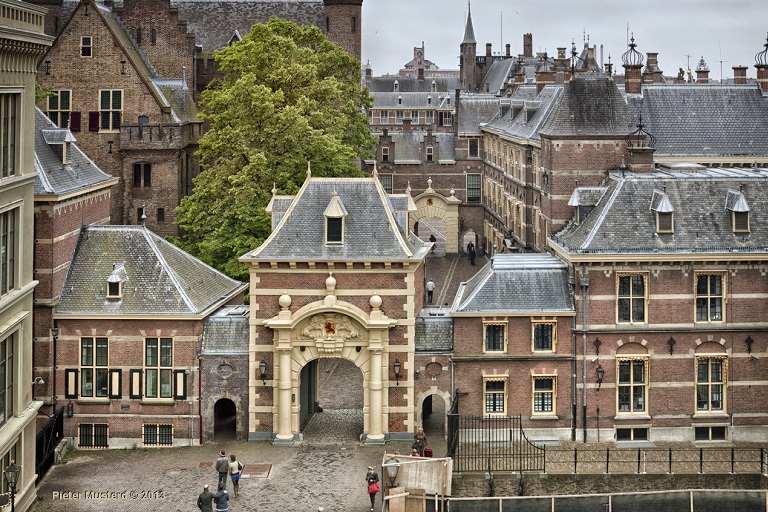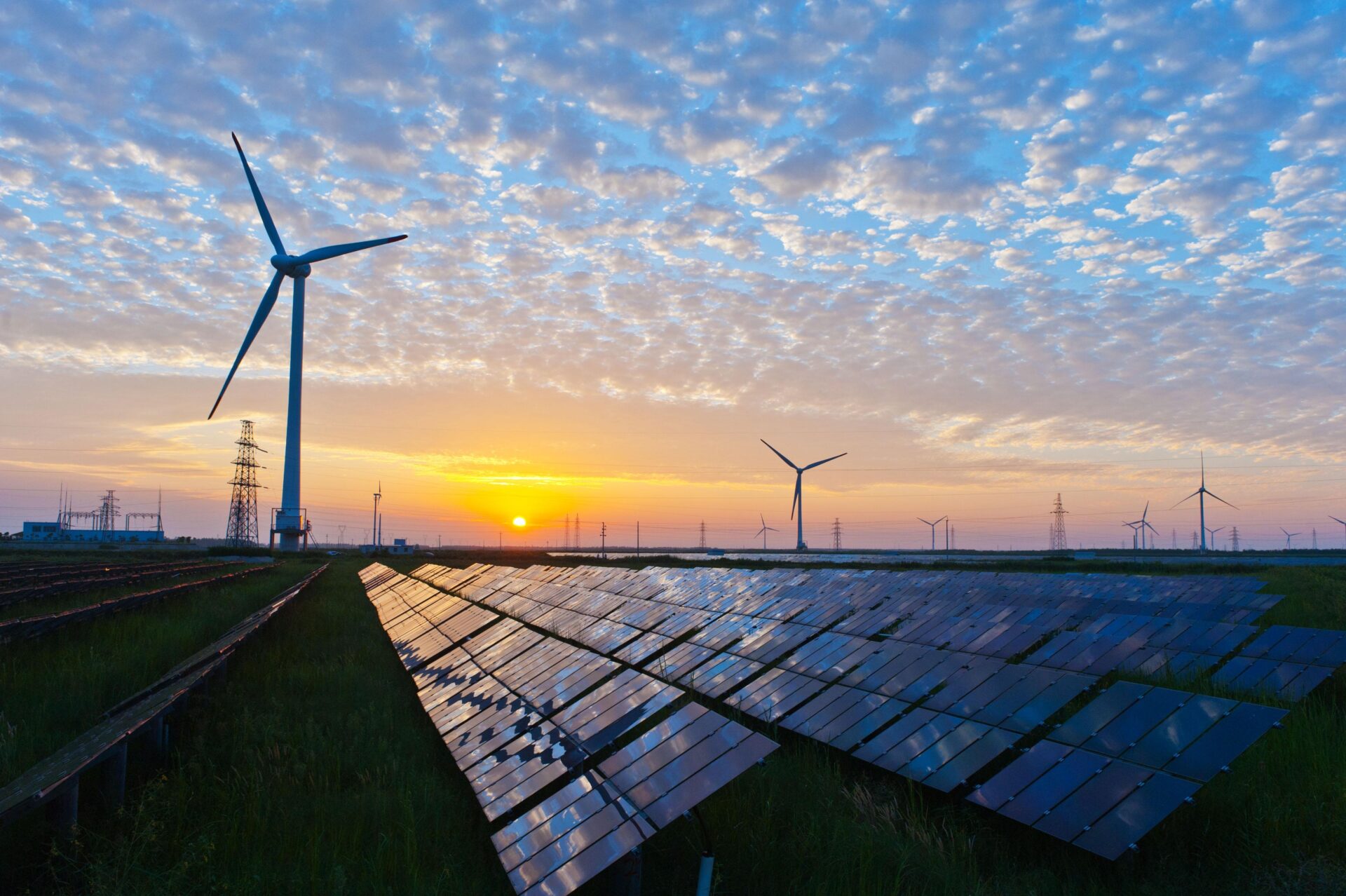This busy year, in which the number of challenges increased, Lower House Speaker Vera Bergkamp describes as "a year of great events. For example, Ukrainian President Zelensky addressed the Lower House. Never before had a foreign head of state addressed the Dutch parliament. In addition, parliamentary history was again made in October by the suspension of a member of the Lower House. Mark Rutte became the longest-serving prime minister of the Netherlands in August and six constitutional amendments were adopted on July 5. The largest constitutional revision since 1983.
Not only on the political front did a lot happen. A lot changed at Publieke Zaken as well. This year we moved to our new office at Hoge Nieuwstraat. A new office built for growth. And grow Publieke Zaken did with as many as nine new employees. In 2023 that growth continues and we welcome two new colleagues again. In October, the new office was opened by ChristenUnie front man Gert-Jan Segers. He noted that there is a big gap between business and politics that needs to be closed by talking to each other. That is what Publieke Zaken remains committed to. The past period has also seen hard work on two new tools. The European Monitor, which launched last November, and in January 2023 we are launching Publieke Zaken - Energy Research & Strategy. Under the direction of Hans van Cleef, this will allow us to analyze and interpret market developments in the field of energy.
Say energy, we think of the past year when energy prices went through the roof, but perhaps also of the parliamentary inquiry into gas extraction in Groningen. Climate and the environment have also been a major theme over the past year. Think of the ongoing nitrogen crisis. These events are what Publieke Zaken looks back on.
A new coalition agreement
On December 15, 2021, the new coalition agreement between VVD, D66, CDA and ChristenUnie was presented. A good start for 2022, provided you leave aside the 299 days of formation. Anyway, a new team of ministers and state secretaries presented themselves at the beginning of January in front of the Noordeinde Palace, after which they could start implementing an ambitious coalition agreement. In the area of climate and energy, the new coalition agreement contains significant challenges. Emissions of greenhouse gases must be reduced by 55% by 2030 (compared to 1990). To achieve this, 35 billion euros were made available for the new plans in the agreement. For example, the government is betting heavily on a national insulation program that will financially support the insulation of homes. To make the built environment more sustainable, new subsidies for heat pumps were introduced and the cabinet intends to make geothermal heat networks financially viable. Furthermore, the coalition believes that companies should pay more for CO2 emissions. The coalition agreement therefore includes customization agreements to make industry more sustainable. The agreements are currently being worked on. The coalition agreement also pays much attention to the generation of renewable energy. In the coming years, the cabinet will be investing heavily in offshore wind, solar panels on roofs, hydrogen and green gas. As icing on the cake, two new nuclear power plants will also be built.
The Energy Crisis
Perhaps the most palpable crisis this year has been the energy crisis. In early February, it became clear that cheap gas was not a given, due to the winding down of gas production in Groningen and an ever-closer Russian gas tap. Although the price of gas was already rising significantly last year - for example, according to CBS, a household was already paying 86% more in January of this year than a year earlier - in February the price of gas begins to rise exponentially. Russia's invasion of Ukraine is a contributing factor.
The Netherlands responds with sanctions against Russia. In April, Minister of Climate and Energy Jetten decides that municipalities must end their gas contracts with Russian state-owned Gazprom. A decision that is later criticized because municipalities have to take out expensive gas contracts elsewhere. As Henri Bontenbal (CDA) warned back in April, "They then go to another supplier who has to buy it on the spot market. Gazprom has those positions and just resells the gas at a much higher price, so Gazprom gets more net money through that action." In November, it becomes clear that Germany is not sitting still either and nationalizes the German branch of Gazprom under a new name: SEFE Energy. Existing contracts may be kept.
Not only the municipality itself, but also the consumer was hit hard. Energy bills were rising at a rapid pace. The government therefore decided to give two times 190 euros rebates on energy bills. Low incomes - who are already often in poorly insulated homes - are additionally compensated through the municipality with an energy allowance of 1,300 euros. In addition, the government is preparing to introduce a price cap, a maximum price for gas, electricity and district heating.
In addition to consumers, producers are also feeling the energy prices. In September, a cry for help rang out from the bakers of the Netherlands. Rising prices are threatening to put many bakeries out of business. The government therefore decides to introduce the so-called TEK scheme (Tegemoetkoming Energiekosten). The scheme is a temporary relief for SMEs whose energy costs make up at least 7% of their total turnover. In addition to SMEs, large-scale consumers and industry will also feel the prices. Greenhouse horticulture is emptying greenhouses and industry is switching off. Efforts are being made to save energy and increase sustainability to dampen costs.
The government is taking many measures this year, but there is also criticism from the House of Representatives. In particular, measures take effect on Jan. 1, 2023, and do not work retroactively for 2022. The continuation of certain measures is also not guaranteed in the years after 2023. For example, the price cap will not take effect until January 1, as will the TEK scheme. To what extent these measures prove effective we will not know until 2023.
The parliamentary inquiry
In March 2019, on the initiative of Tom van der Lee (GroenLinks), the House of Representatives decided to hold a parliamentary inquiry into natural gas extraction in Groningen. The purpose of the inquiry was to gain insight into decision-making at crucial moments and to draw lessons for the future. The parliamentary inquiry is the heaviest investigative instrument available to the Lower House and allows for extensive research, requests for documents and hearings of those involved under oath. Dutch citizens summoned for questioning by the committee are required to appear. The remedy is relatively rare; there have been a total of 21 in parliamentary history since 1852. Well-known subjects on which parliamentary inquiries have been conducted include Srebrenica (2002), the Bijlmer disaster (1998-1999) and government policy during World War II (1947-1956). The last time a large-scale parliamentary inquiry was held was in 2013 on the Fyra train connection between the Netherlands and Belgium.
Between June 27 and Oct. 14, the committee interviewed a total of 69 witnesses, ranging from injured parties, top officials, CEOs of oil companies, to key government officials such as the prime minister. The public hearings are only part of the investigation, but the most visible. They had to make clear that gas production has brought much to the Netherlands, but for the victims it also had drawbacks, as chairman Van der Lee repeated as an introduction to each interrogation.
The public hearings centered around a number of periods or events that had a major influence on the further course of gas extraction in Groningen. Examples include the Huizinge earthquake in 2012, still the worst earthquake ever recorded in the Netherlands. The record extraction in 2013. The decline in production volume in the years that followed. The zero decision in 2018 and the pause button on strengthening buildings in Groningen that accompanied it. The accumulation of knowledge about the subsurface, or lack thereof in the period before 2012, was also discussed at length.
In total, the committee requisitioned over 600,000 documents from 47 organizations. It also conducted 124 private preliminary interviews in addition to the 69 public hearings, and the committee made a total of 5 working visits to Groningen and met with 35 victims in their homes. Currently, the committee of inquiry is working on its final report. This will incorporate the findings from the source research, the working visits, the private preliminary interviews, the requested documents and the public hearings. The report is expected at the end of February. The House will then debate the report in the spring and the (political) consequences of the findings will be determined.
The nitrogen crisis
`What do you think about this crisis?' In recent months, a video circulated on social media asking people on the street to respond to this question. When an answer is given, the reporter responds with: 'no, I don't actually mean that one, I mean that ánother crisis.' In this way several crises pass by without it becoming clear exactly what the reporter is referring to.
A few weeks ago Nieuwspoort hosted a review of crisis year 2022. Here too various crises were discussed and the aftertaste was more negative than one would like.
The agricultural sector has been in crisis since 2019. Uncertainty, indecision and necessity fight for precedence, with politics and practice sometimes seeming far apart. In the spring, the situation escalated due to missing perspective and a confrontational, and later unusable map. The new minister at the helm since October needed not only knowledge of the situation, but also a crash course in crisis management. Professional mediator Remkes laid a foundation last summer, now looking ahead to concluding an Agriculture Agreement in 2023. The crisis is not over yet. There is still much pain and misunderstanding, of which politicians are becoming more and more aware. There will be many more conversations to come, to come closer together and make inevitable choices. 2023 will have to be marked by taking these challenges on the horns, in some cases choosing eggs for your money and trying to realize that the grass on the other side also needs to be watered to stay green.
We hope not to send you too sadly into the new year. Of course, despite many crises, there has also been much progress. For example, the corona crisis seems to have been settled and this year it was again possible to celebrate the holidays without restrictions. We hope you enjoyed it and wish you a good 2023.
The team of Publieke Zaken


